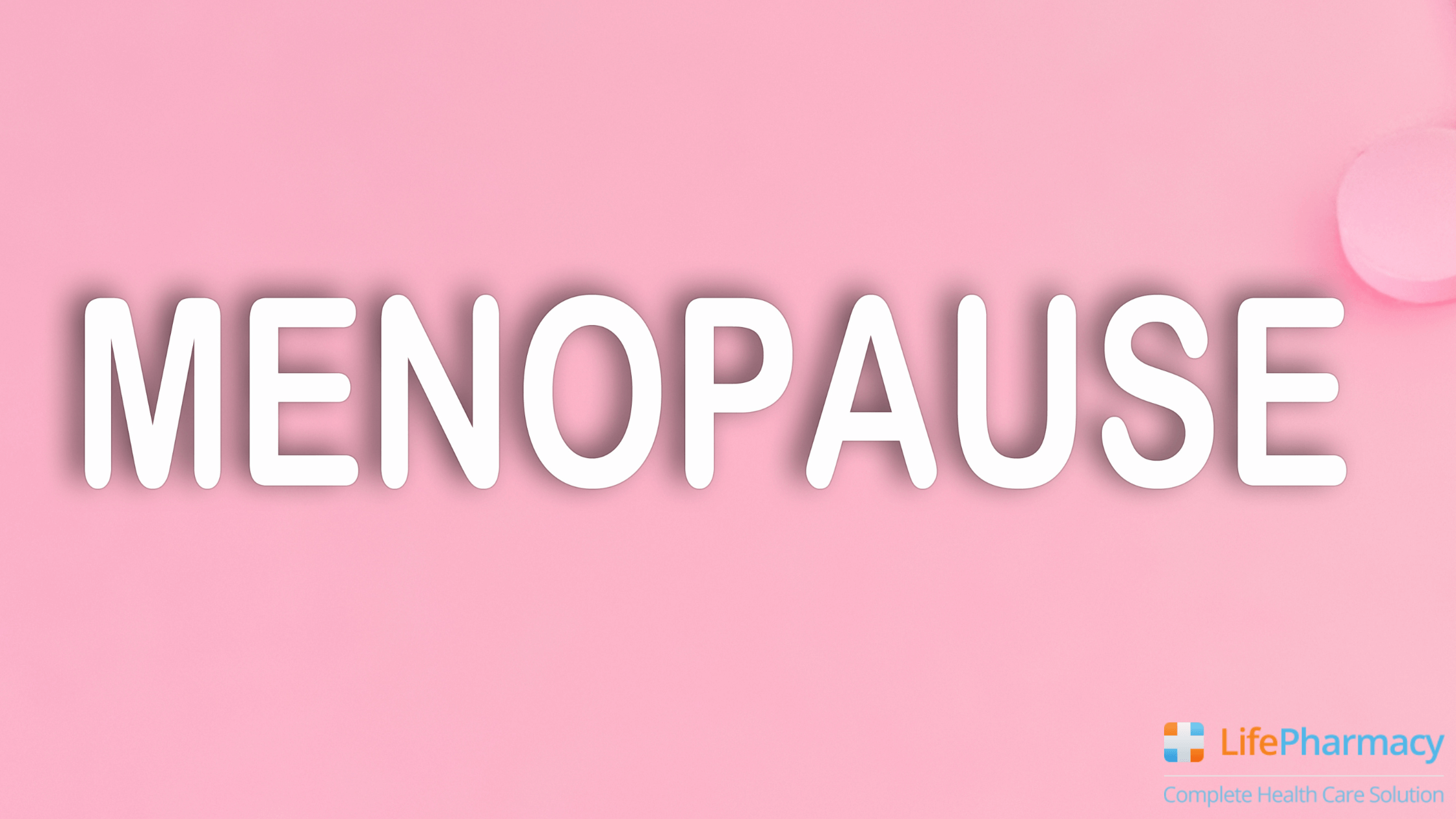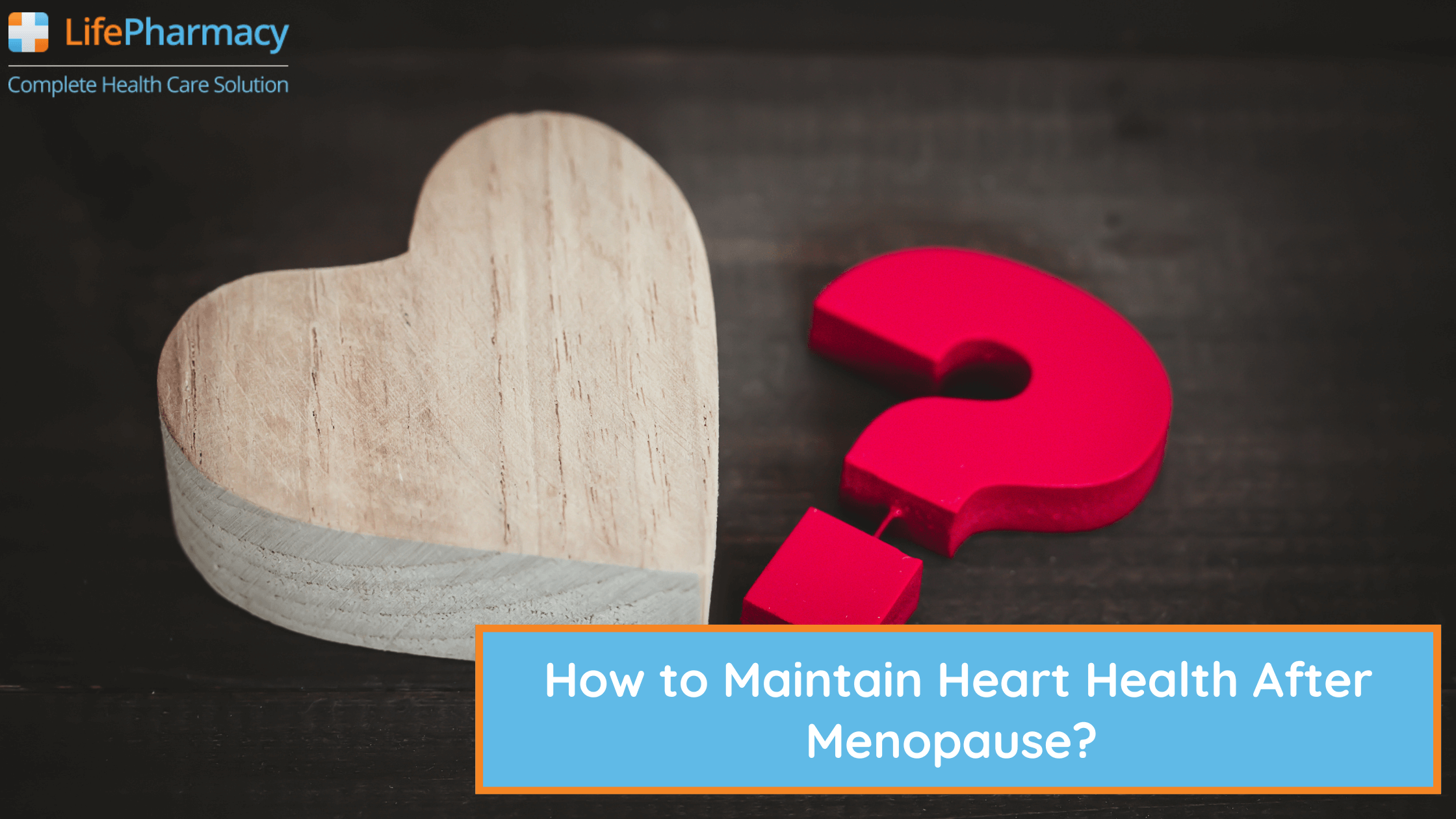Research has proved that heart disease risk factors are much higher as you age. It is a myth that heart disease is a man's disease, whereas, in reality, it is noted to be the top killer in women. After the age of 50, some form of cardiovascular disease is responsible for more than half the deaths in women.
Menopause is a critical phase in every women's life; when menstrual periods permanently stop, occurring around the age of 50 to 54; hot flashes, mood swings, and insomnia make it challenging to surpass this phase. To add to these challenges, women must combat a more serious problem, which is an increased risk of heart disease.
An important thing to note is that menopause doesn't cause heart disease, but the chances of contracting one become higher after the onset of menopause.
Here are a few reasons believed by Online Chemist UK for the postmenopausal spike in the risk of developing heart disease:
Lower Estrogen Levels
Although it is not scientifically proven, experts think that the natural decline in estrogen levels during menopause plays a crucial role in women developing heart disease. Estrogen is believed to have a protective effect on women, improving the flexibility of the blood vessels around the heart. Due to the smooth relaxation and expansion of the heart vessels, the blood flows easily, keeping the blood pressure in control.
In fact, the risk of heart disease is higher amongst those women who experience early menopause naturally or have had their ovaries removed before age 40.
Increase in Bad Cholesterol Levels
Additionally, estrogen increases good cholesterol(HDL) and reduces the level of harmful one(LDL). Due to this change in the lipid profile of women at the onset of menopause, there is a greater risk of clogged arteries, blocking the blood flow to the heart, brain, and legs.
Extra Visceral Fat
Abdominal weight gain is a common byproduct of menopause, signaling an increase in visceral fat. This fat surrounds internal organs, contributing to elevated blood cholesterol, high blood pressure, and type 2 diabetes, all risk factors for heart disease.
Obesity increases the heart's stress to pump blood, causing the blood pressure to rise. However, many researchers believe that people with more weight around the belly are at a greater risk of heart attack than the ones who are heavier overall. So if you wish to check whether you have a more visceral mass around your belly, measure your waist. If it is 35 inches or more, then let the warning bells start ringing.
Blood pressure

Although excess belly fat can cause high blood pressure, lower estrogen levels due to menopause and aging can make the blood vessels less flexible. Reduced flexibility means stiffer arteries which will directly cause a hike in the blood pressure, leading to cardiovascular problems such as heart failure or stroke after menopause.
Click here to learn in detail about blood pressure, types, symptoms, and treatments.
Hot flashes
Around four years before menopause, women often experience hot flashes due to fluctuating estrogen levels, which is highly annoying, exhausting, and embarrassing. In addition, some research links hot flashes to higher blood pressure and cholesterol levels, making it a risk factor for cardiovascular disease.
Blood glucose levels
There is a strong link between estrogen loss and a rise in blood sugar levels due to menopause. As a result, women post menopause are in the high-risk zone of developing type 2 diabetes—high sugar levels in the bloodstream damage the blood vessels and the nerves that control your heart. However, you can boost your lifespan even with type 2 diabetes by following some tips from UK online pharmacy.
Although menopause can elevate the risk of developing heart disease, by following these, you can improve your postmenopausal heart health:

Know your Numbers:
Diabetes, high cholesterol, and high blood pressure put you at a greater risk of heart disease, making it crucial to regulate and treat these medical conditions. Don't forget to take your diabetes or blood pressure medication if you have been diagnosed with it.
It is essential to know these numbers and get appropriate medical attention after the age of 40 to avoid any hassle. You can get your cholesterol tested and use the blood pressure monitor UK or diabetes testing kit from an online pharmacy to track these numbers.
Don't Smoke Before you Hit menopause:
Smokers generally are at a higher risk of heart attack than non-smokers. However, the stakes are much higher if you smoke during or after menopause. The reason is that cigarette smoking increases your blood pressure, and menopausal women are more likely to have high blood pressure levels already. To put it simply, to maintain a healthy heart, you need to kick your smoking habit. Online pharmacists not only advise you to quit smoking but also urge you to avoid passive smoking or secondhand smoke.
Immunization
Get your annual flu vaccination to avoid the seasonal flu (Influenza), as it has been linked to increased heart attacks and strokes. The flu shot will reduce the risk of contracting influenza as well as lower the risk of the severity of the infection in case you end up getting one.
Maintain a healthy diet

Diet plays a vital role in controlling many health-related problems; a balanced and nutritious diet devoid of too much salt, sugar, and alcohol can significantly lower high blood pressure and cholesterol. An elevated blood pressure level means the heart must put more effort into circulating the blood through the body. Therefore, practicing moderation and eating heart-healthy foods that are rich in fiber like whole grains, fruits, vegetables, legumes (such as beans and peas), fish, folate-rich foods, and soy is beneficial.
The more you are over your ideal weight, the harder your heart has to work to give your body nutrients. Research has shown that being overweight contributes to the onset of heart disease.
Active Lifestyle and Enough Sleep
Much like the other body muscles, the heart, a muscular organ, must be worked up to retain its health and strength. For this, cardiovascular exercise like brisk walking, running, swimming, dancing, cycling, aerobics, etc, for at least 30 to 45 minutes every day can get your heart rate pumping, improving blood circulation. Additionally, being active may help to reduce other risk factors like high blood pressure and cholesterol. Exercising energizes your body and mind, reducing stress. It helps maintain a healthy weight and improves blood sugar levels. Which one do you think is better: lifestyle changes or medications? Switching from an inactive lifestyle to an active one keeps heart diseases at bay!
Reducing Stress
Stress is a giant killer when it comes to cardiovascular disorders. Women are often quite stressed as they multitask; they juggle their household, work, family, and other responsibilities. This aggravates their stress levels, which can worsen your cardiovascular well-being. To de-stress, women at any age, before or after menopause, must indulge in activities like reading, dancing, painting, etc., of their choice. In addition, yoga and meditation seem to impact managing stress levels profoundly.
Another critical factor in reducing stress and ensuring overall health is getting enough sleep. On average, 6 to 8 hours of sleep per night is a must for adults. Individuals who do not get enough sleep may notice a risk of high blood pressure, obesity, and diabetes, all triggers of heart disease.
Understand the Signs of a Heart Attack
Besides chest pain, women experience several other symptoms of a heart attack. They are fatigue, weakness, tiredness, dizziness, unusual sweating or vomiting, shortness of breath, problems sleeping, tightness in the center of the chest, or pain spreading to the upper body, neck, or jaw. By knowing these warning alarms, one can prevent unforeseen circumstances.
FAQ
What about hormone replacement therapy? Does it help women improve their heart health after menopause?
Hormone replacement therapy gives a woman's body adequate estrogen and other hormones to help combat the postmenopausal symptoms of hot flashes and vaginal dryness. But, it turns out that taking hormonal supplements after menopause may even further increase your risk of having a heart attack or a stroke.
The risk is much higher if you are many years out from menopause; however, if you decide to take it right after menopause, the risk is lower, so this can be used as a short-term method to treat menopause symptoms.
Conclusion
Menopause cannot be termed as a disease as it is the natural termination of a women's menstrual life cycle. But, due to the several bodily changes women undergo during this span, they need to take stock of their health as they approach menopause. For example, heart diseases after menopause are preventable with lifestyle modifications and diet changes. Life Pharmacy UK understands women's problems during this phase and wishes to support them in every way. Order your stock of meds from Online Pharmacy UK now to deal with any health-related issues before or after menopause.






